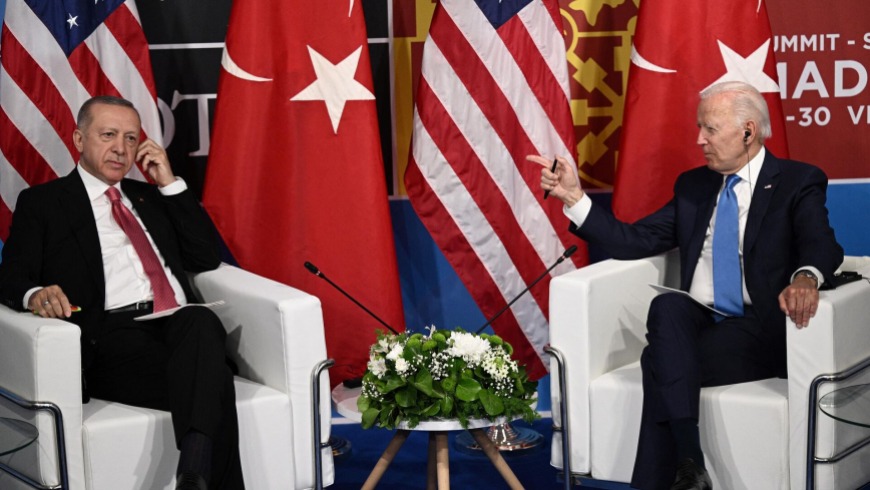There are three primary rationales for the United States to engage in substantive dialogue with Turkey regarding the YPG issue:
Firstly, the significant concern Turkey holds regarding U.S. support for the YPG necessitates attention from Washington. Viewed as a threat to its national security, Turkey’s perspective demands acknowledgment through negotiations. Ignoring this issue risks stalling progress in U.S.-Turkish relations, particularly amidst Turkey’s heightened geopolitical importance following the Russian war on Ukraine. Recent military tensions between the two nations in Syria underscore the danger of disregarding Turkey’s apprehensions regarding Kurdish units, which increasingly constrain U.S. actions in the region.
Secondly, the escalating challenges confronting the American military presence in Syria cast doubt on Washington’s ability to sustain this deployment indefinitely.
While the United States has yet to exhibit clear intentions of a drastic shift in its Syria policy, recent leaks from American media outlets suggesting the Biden administration’s contemplation of withdrawal plans underscore the imperative for collaboration with Turkey concerning Kurdish units. Such cooperation becomes indispensable if Washington seeks to mitigate the ramifications of any withdrawal on its future interests in the region.
Fostering U.S.-Turkish collaboration in countering terrorism emerges as the most rational course for safeguarding American interests in Syria going forward. Given Turkey’s status as a strategic ally and NATO member, bolstering its involvement in the conflict advances long-term American objectives while undercutting the potential gains for Iran and Russia in the event of a U.S. withdrawal.
Thirdly, recognizing the impact of Turkish-American discord over Kurdish units on Ankara’s alignment with other players in Syria, such as Russia and Iran, emphasizes the necessity for U.S.-Turkish counterterrorism cooperation. By addressing Turkey’s security concerns, Washington aims to mitigate Ankara’s drift towards the Russian-Iranian strategy, which challenges American and Western influence in Syria. Realistically, Turkey’s inclination to synchronize its interests with Russia and Iran could diminish if the U.S. demonstrates a genuine commitment to addressing its security apprehensions regarding Kurdish units.
With just a few months remaining in President Biden’s term, it’s improbable that this timeframe will be adequate for Turkey and the United States to achieve a comprehensive resolution to the YPG issue, given the significant complexities involved. Nonetheless, initiating a process to align their interests in Syria will benefit both nations in the long run, facilitating the establishment of common ground for cooperation in Syria, irrespective of the incoming president who will lead the United States after the November presidential elections.
This article was translated and edited by The Syrian Observer. The Syrian Observer has not verified the content of this story. Responsibility for the information and views set out in this article lies entirely with the author.


